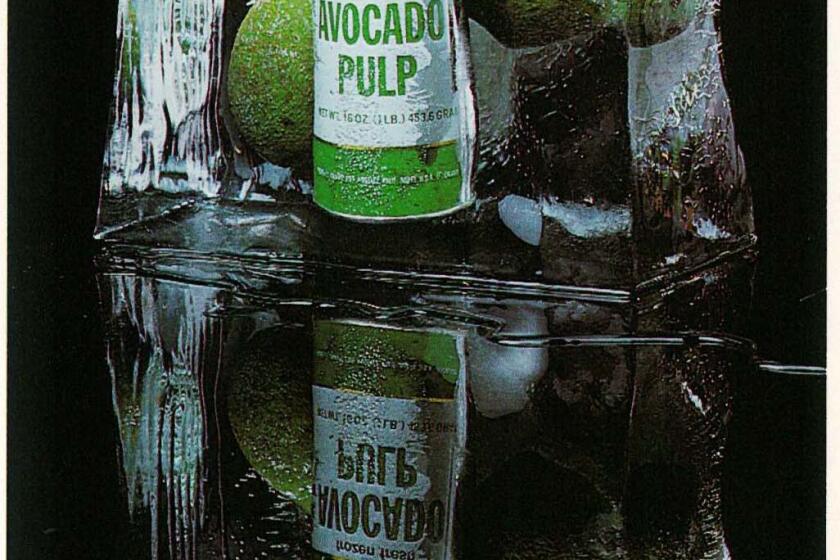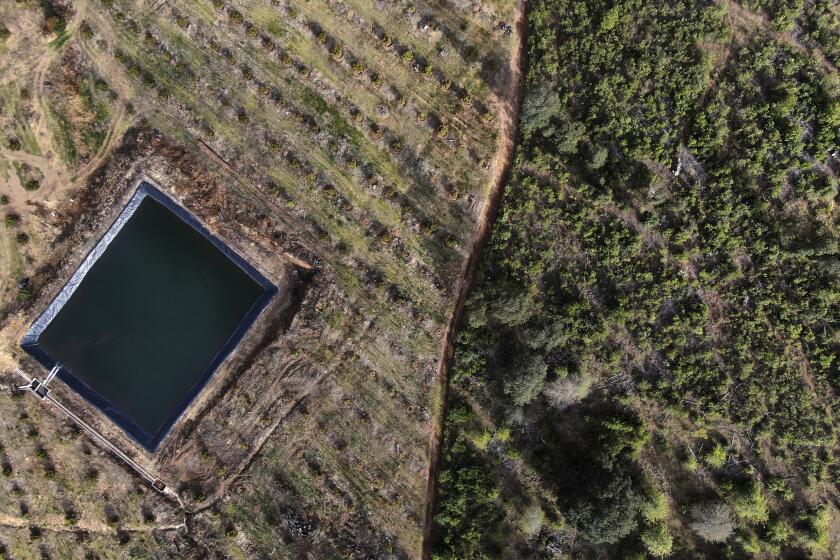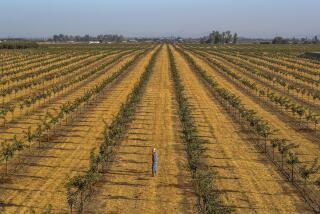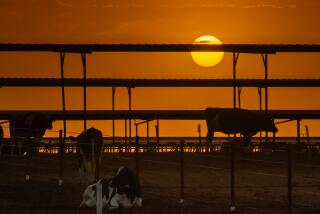Avocado imports from Mexico are blocked. What does that mean for you?
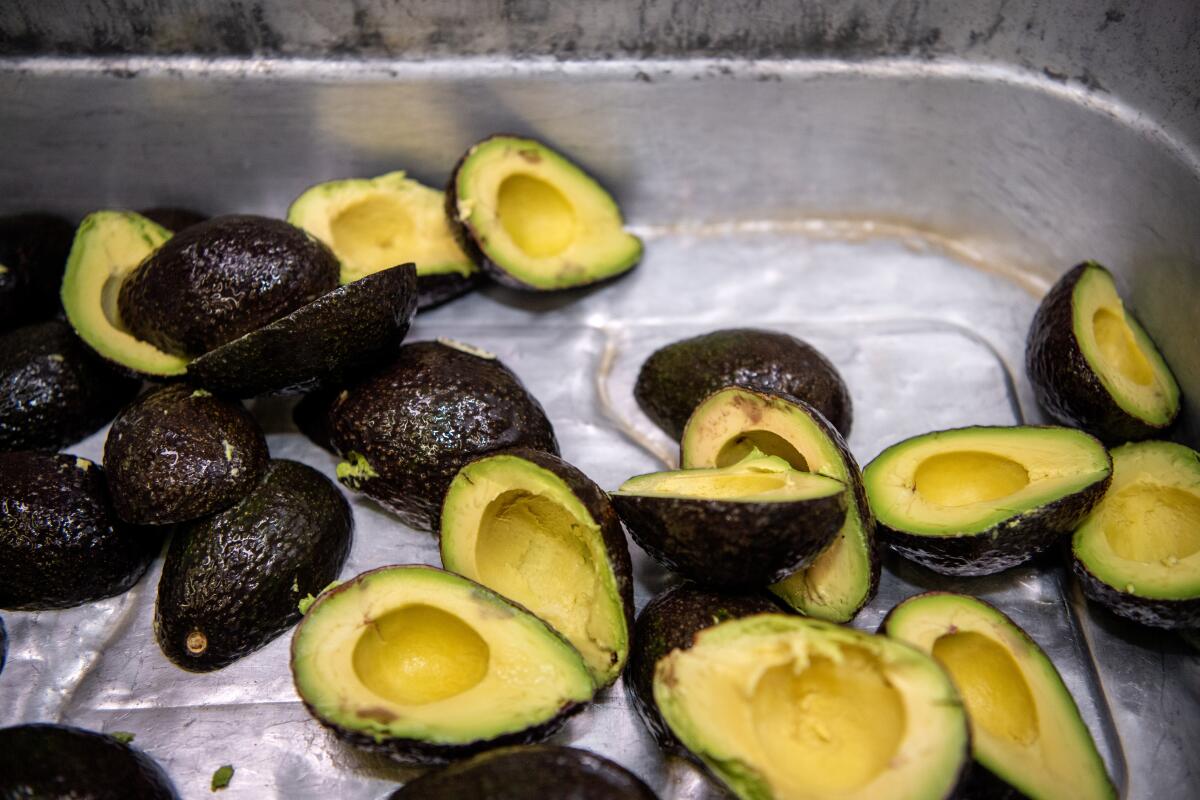
- Share via
A security spat between the U.S. and Mexico that threatens the avocado supply in the U.S. is putting the spotlight on California farmers, a major U.S. supplier of the fruit.
The U.S. on Friday suspended all avocado imports from Michoacán, the only Mexican state approved for avocado exports, after a U.S. plant inspector there received a threatening phone call.
California produces the majority of U.S.-grown avocados, meeting about 10% of the nation’s consumption. The rest is imported, mainly from Mexico, and farmers fear a prolonged ban could squeeze the market in a way they aren’t prepared to handle.
U.S. officials didn’t elaborate on the nature of the threat against the U.S. Department of Agriculture employee in Michoacán, a coastal state just west of Mexico City where drug cartels have taken over communities and in recent years have fought for control of the avocado industry.
“Is this a short-term or a long-term thing?” said Maureen McGuire, chief executive of the Farm Bureau of Ventura County, home to some avocado farms. The state’s nearly 3,000 avocado farms are spread all the way down to San Diego County, with a few in San Luis Obispo County. “If it’s resolved over months, or something like that, then it’s a missed opportunity to serve U.S. consumers,” McGuire said.
The 10,000-year history of our favorite Super Bowl dip
Though a supply squeeze and short-term price bump might seem like a good thing for local growers, some said they can’t meet demand in the long run without Mexican imports.
“Prices are going to go up, and there’s actually product available to sell,” McGuire said. “Without Mexico available in the long term to fill that consumer demand, it’s actually a negative thing for the industry as a whole.”
The suspension will remain in place “for as long as necessary to ensure the appropriate actions are taken” to guarantee the safety for employees in Mexico, Suzanne Bond, a spokesperson for the Animal and Plant Health Inspection Service, an agency within the U.S. Department of Agriculture, said in a statement.
A major avocado trade group in Mexico said it was coordinating with authorities in the U.S. and Mexico to “resolve the problem” and that the suspension has affected more than 300,000 industry employees.
Mexican President Andrés Manuel López Obrador on Monday said that officials were looking into the nature of the threat to the U.S. plant safety inspector.
While saying that Mexico has “a very good relationship with the United States,” López Obrador suggested that the U.S. move was political. “In all of this, there are many political, economic interests, there’s competition,” he said.
Mexico exports 80% of its supply to the United States, according to the USDA. In 2007, it surpassed Chile to become the main supplier of avocados to the U.S.
Michoacán has exported avocados to the U.S. for about 25 years, according to the USDA. The state’s plentiful rain, sun and rich volcanic soil have made it an ideal place to grow avocados. In the last six weeks, avocado producers from Michoacán exported more than 135,000 tons of avocados to the U.S., according to Mexico’s ministry of agriculture and rural development.
This is the first time the U.S. has suspended imports from the entire state of Michoacán, according to Mexican officials. But U.S. officials have halted inspection of Mexican avocados for shipment to the U.S. before. In December 2020, the U.S. stopped importing avocados from one region in Michoacán for a month after an armed group burned avocado shipments, Mexican officials said.
U.S. plant inspectors are positioned both at the border and at orchards to ensure the produce meets safety standards before it enters the U.S., said Daniel Sumner, a professor of agricultural economics at UC Davis.
For years, criminal groups have fought for control of the avocado trade, extorting orchard owners and illegally seizing land to grow their own groves.
The incursion of organized crime into the avocado industry was propelled partly by the militarization of Mexico’s war on drug traffickers. Large cartels split into smaller groups that looked for criminal opportunities in other areas.
Regular citizens have taken the fight against illegal logging into their own hands in the pine-covered mountains of western Mexico.
Falko Ernst, a senior analyst for Mexico with the International Crisis Group, said he has interpreted the suspension as “a warning shot” directed at Mexico to guarantee the safety of U.S. personnel in Michoacán.
“We don’t really know what this is yet, we don’t know anything about the threat really beyond a phone call taken seriously,” Ernst said. “But suspending the trade for an undefined amount of time is a potential steppingstone into particular sanctions.”
Ernst said a suspension could profoundly affect the livelihood of Michoacán’s avocado workers, who might be forced to turn to illicit ways to make a living or seek job opportunities in the U.S.
“We are talking about huge industries that are feeding tens of thousands of law-abiding working families,” he said. “You might cause a backlash by inadvertently harming these populations’ livelihoods.”
In California, some avocado growers started hearing news of the suspension Sunday through word of mouth. Some asked McGuire of the Ventura County Farm Bureau what kind of response the U.S. would want from Mexico to restart exports or how long the standoff might last.
Avocados are harvested once a year and the harvest typically takes place from late spring to early fall.
This year, some avocado farmers in Ventura County are seeing an earlier season than normal due to the rains and Santa Ana wind conditions, which can encourage growers to start harvesting avocados sooner so the wind doesn’t blow the fruit off branches, McGuire said.
Mexican and Peruvian avocados have slightly different seasons, enabling U.S. consumers to get avocados year-round, said Sumner of UC Davis.
“There’s no way that California could satisfy the U.S. market,” he said.
Avocado importer Calavo is optimistic about a quick end to the standoff. The Santa Paula-based company said in a statement that it has enough avocado inventory to serve customers this week, which is traditionally a slow week for avocado sales since it’s after the Super Bowl. Calavo said it was working through its trade associations to encourage the USDA to “resolve the situation swiftly.”
“If the import ban is lifted in the next few days, as we believe is likely, then there would be little to no impact to our sales,” the company said.
Avocado prices in the U.S. aren’t likely to rise immediately because of supply in grocery stores and storage facilities, said Rick Shade, a Carpinteria avocado farmer and former chairman of the California Avocado Commission.
He also said he doubts the suspension will last long: “There are too many people across the food chain who want to see this resolved quickly and get the flow of Mexican avocados back on track.”
Before the Super Bowl on Sunday, Michoacán Gov. Alfredo Ramirez Bedolla boasted about the state’s avocado sales on Twitter, writing that “regardless of who wins the game today, the avocado produced in Michoacán is already the real winner of the night.”
By then, the export ban had already taken effect, and any guacamole served at Super Bowl festivities featuring Mexican avocados would have already arrived in the days and weeks before.
The U.S. embassy in Mexico said Sunday that “facilitating the exportation of Mexican avocados to the U.S. and guaranteeing the safety of our teams of agriculture inspectors goes hand in hand.” In a statement, it said U.S. officials were working with Mexico to create safe conditions that could allow U.S. personnel in Michoacán to resume their work.
More to Read
Inside the business of entertainment
The Wide Shot brings you news, analysis and insights on everything from streaming wars to production — and what it all means for the future.
You may occasionally receive promotional content from the Los Angeles Times.
